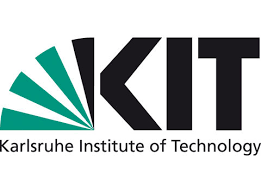Karlsruhe Institute of Technology: Automated chemical synthesis – reliable production and rapid knowledge acquisition
The Karlsruhe Institute of Technology (KIT) is building one of the most modern infrastructures for automatic process control in chemistry together with BASF SE: The system will initially produce new substances in parallel for applications in areas ranging from biology to materials science. In the long term, the system will also enable a high-throughput process for chemical reactions. KIT is investing around four million euros in this project. The facility is located in the Karlsruhe Nano Micro Facility (KNMFi) and will be open to internal and external researchers.
The development of automated systems for chemical reactions for the production of new materials for various applications in biomedicine, pharmacy, electronics and many other areas is the goal of scientists worldwide. “Such synthesis systems allow chemical reactions to be carried out in a reproducible and standardized manner thanks to automated processes without human exposure to chemicals,” explains Professor Stefan Bräse, Director at the Institute for Biological and Chemical Systems (IBCS) at KIT. “In addition, automated processes increase the throughput of reactions and thus the efficiency of the research project. This leads to new knowledge more quickly. “
In the next two years, KIT will invest around four million euros in the development of a system for the automated synthesis of new chemical substances. The system will be located in the KNMFi in order to give interested internal and external researchers permanent access to one of the most modern infrastructures for automatic process control in chemistry. As a strategic partner, BASF will, for example, carry out projects in the facility to identify new active ingredients for agriculture.
Modular structure facilitates future expansions
Several projects that have been prepared by researchers in the working group of Stefan Bräse and other KIT scientists are brought together in this project. Wherever possible, the facility will integrate components of free hardware and software in order to enable transparent development and later use by other researchers. In addition, the individual components of the system are put together in a modular way so that future expansions can be easily implemented. KIT is involved in various consortia of the National Research Data Infrastructure (NFDI), especially in NFDI4Chem, which specializes in chemistry.
Process management, robotics, software development and construction work together
Initially, the synthesis plant is to be geared towards projects in organic-synthetic chemistry: It is to produce small organic molecules of around ten milligrams to several hundred milligrams, for example for chemical intermediates or active pharmaceutical ingredients. In the future, however, the system should also be able to be used flexibly and carry out reactions on a small scale so that researchers can investigate many reactions at the same time in a parallel process. For both use cases, BASF brings extensive expertise to the project, because the company already operates an automated high-throughput platform at its main location in Ludwigshafen. “We are very much looking forward to working with the participating groups at KIT,” says Andy Wieja, Team Leader Combinatorics & Thermal characterization at BASF. “The development of new technologies at KIT will provide new impulses for synthesis projects and process automation at BASF and thus accelerate research and development for future innovations.”

